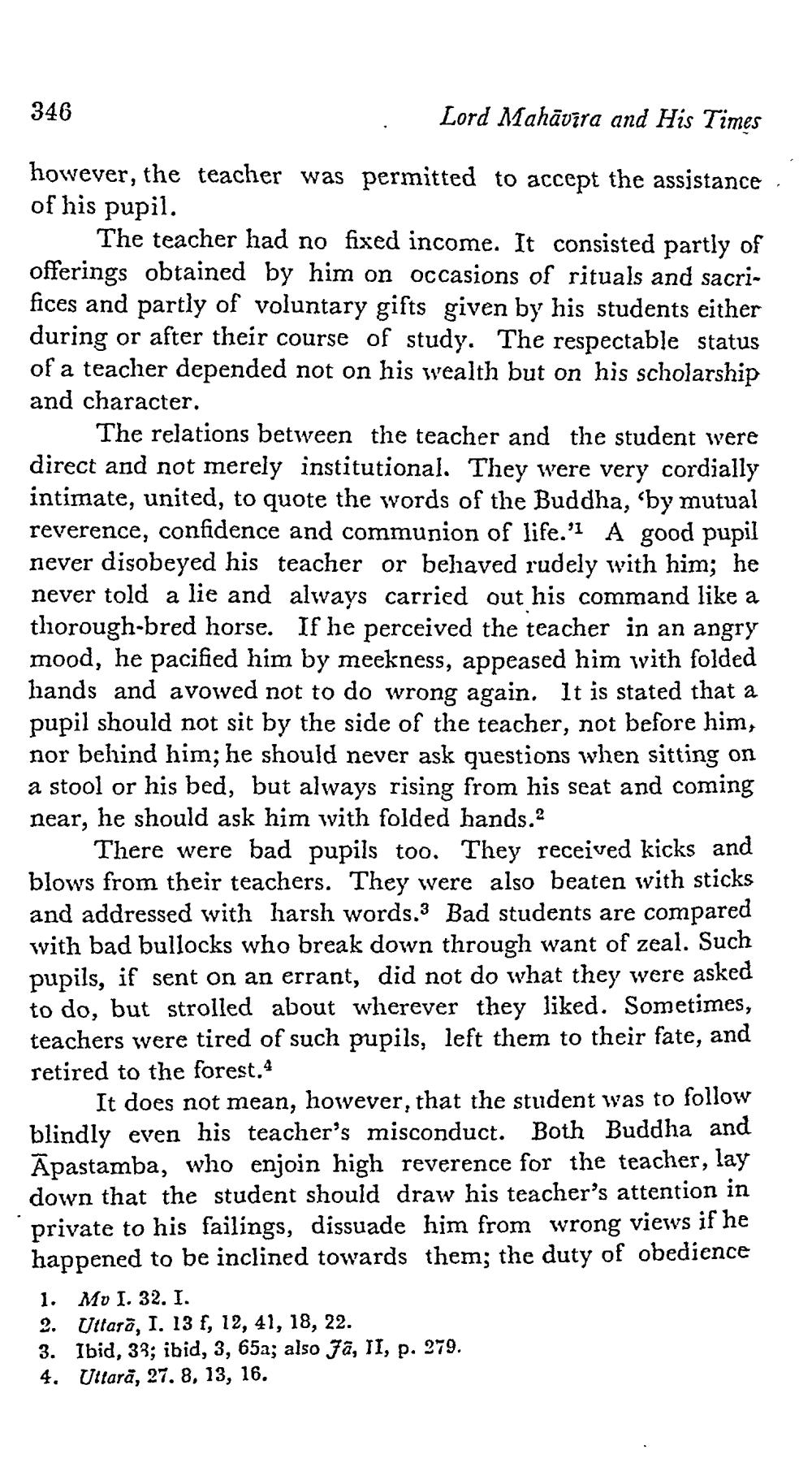________________
Lord Mahavira and His Times
however, the teacher was permitted to accept the assistance of his pupil.
346
The teacher had no fixed income. It consisted partly of offerings obtained by him on occasions of rituals and sacrifices and partly of voluntary gifts given by his students either during or after their course of study. The respectable status of a teacher depended not on his wealth but on his scholarship and character.
The relations between the teacher and the student were direct and not merely institutional. They were very cordially intimate, united, to quote the words of the Buddha, 'by mutual reverence, confidence and communion of life." A good pupil never disobeyed his teacher or behaved rudely with him; he never told a lie and always carried out his command like a thorough-bred horse. If he perceived the teacher in an angry mood, he pacified him by meekness, appeased him with folded hands and avowed not to do wrong again. It is stated that a pupil should not sit by the side of the teacher, not before him, nor behind him; he should never ask questions when sitting on a stool or his bed, but always rising from his seat and coming near, he should ask him with folded hands.2
There were bad pupils too. They received kicks and blows from their teachers. They were also beaten with sticks and addressed with harsh words.3 Bad students are compared with bad bullocks who break down through want of zeal. Such pupils, if sent on an errant, did not do what they were asked to do, but strolled about wherever they liked. Sometimes, teachers were tired of such pupils, left them to their fate, and retired to the forest.4
It does not mean, however, that the student was to follow blindly even his teacher's misconduct. Both Buddha and Apastamba, who enjoin high reverence for the teacher, lay down that the student should draw his teacher's attention in private to his failings, dissuade him from wrong views if he happened to be inclined towards them; the duty of obedience
1. Mo I. 32. I.
2. Uttara, I. 13 f, 12, 41, 18, 22.
3. Ibid, 33; ibid, 3, 65a; also Ja, II, p. 279.
4. Uttara, 27. 8, 13, 16.




